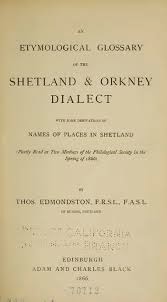One of the first challenges of a new language is learning the vocabulary, especially at the beginning stages of study. We grasp anything that will help our brains remember new words. That's where cognates (words that are similar in two languages) enter the picture.
 |
| Definition of Cognate |
Cognates are generally friends to the language learner, allowing us to immediately understand the meaning of words and remember them for future use. Cognates are great for soothing jangled nerves of language learners.
You can immediately get the meaning in Spanish of these words because they are cognates of English words.
absurdo
magnífico
secreto
declaración
Let's try some English cognates in French.
admiration
cigarette
dialogue
pirate
Here are some Portuguese-English cognate words.
animal
hospital
moral
eternidade
Irish-English cognates are a little more difficult to find, but thankfully I have come upon several playing around with the beta version of Irish on Duolingo.
pasta
dinnéar
tae
péarla
 |
| But be careful with cognates! |
The cognate story is not all rosy. Sometimes there are words in two different languages that look like cognates but are what have been labeled 'false friends'. These words only appear to have the same meaning, but in actuality they have very different meanings. Beginning language learners are sometimes led astray by these false friends and, as a consequence, make some pretty strange statements.
The classic language goof made by Spanish learners (very common in beginning Spanish classrooms), is thinking that embarazada in Spanish means 'embarrassed' in English. Many a poor student has unknowlingly announced to the class that he or she is pregnant. The correct Spanish translation for 'embarrassed' would be avergonzada. False friends, indeed.
Here is an example of false friends in Spanish and Portuguese that would often confuse my beginning Portuguese students. The Portuguese word acordar means 'to wake up', but in Spanish acordar means 'remember'. The correct translation would be the Spanish despertar.
A common error of French learners is another case of a false friend. Assiter in French does not mean what an English speaker would expect, which would be 'to assist'. Instead, assister means 'to attend'. Aider is the French word for 'to assist'.
And here are some false friends I just learned about in Irish, which I know will be very useful! Mná means 'women' on restroom doors. (Might look like 'man' to someone in a hurry!) Fir, which means 'men', indicates the men's restroom, not a type of tree.
So will cognates play the role of friends or foes in your language study? Maybe we need to regard them as we do our human friends, enjoy them, but with a touch of caution!

















